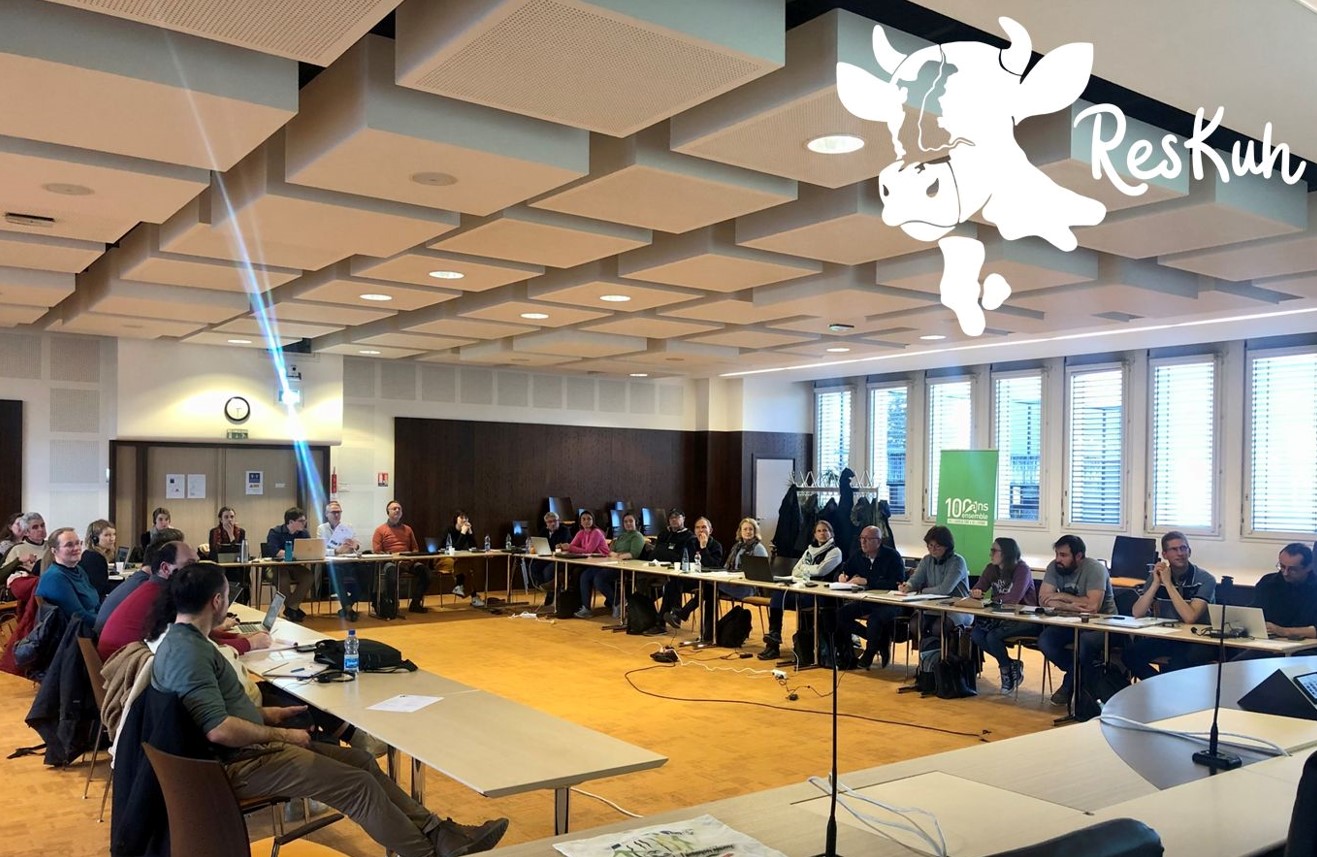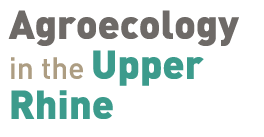ResKuh – the association of “Res” for resilience and “Kuh”, the cow in German, both of them being the central topic of the project – is a new project cofounded by the European Union focused on the resources optimisation and the development of sustainable animal husbandry in the Upper Rhine region. It is the logical sequel of the project KLIMACO and benefits therefore of long-established international partnerships between the Chambre d’agriculture d’Alsace (CAA, French) and the Landesverband Baden-Württemberg für Leistungs- und Qualitätsprüfungen in der Tierzucht e.V. (LKV; Germany), its German equivalent for animal husbandry. Other technical partners involved in the project can be found in France, with the Chambre Régionale d’agriculture du Grand Est (CRAGE), the Institut de l’Elevage (Idele) and the organic farmers network Bio en Grand Est (BGE); and in Switzerland, with AGRIDEA, an organisation for the popularisation of agricultural knowledge and practices. Ten additional associate partners from structure specialized in training, research or counselling can also be found in the three countries.

Figure 1: While the project officially began on the 1st of October 2023, the real kick-off happened on the 16th of January with the launch of the 1st plenary meeting (called PLENUM within the project).
The various French, German and Swiss partners met – some of them for the first time in real life – to exchange about the tasks and methods at hand, the first assignments done in the last months as well as the objectives and action plans for the next three years. The project is subdivided into five working groups, the water management, the pasture management, the energy management, the animal welfare and the reduction of greenhouse gas emission groups. This first plenum allowed the members to discuss the assignments and objectives for the 3 years of the project’s life. They already established their action plans, consisting of producing a current state of the art of modern research in their respective topics, creating training videos or organising workshops. This regularly published newsletter will let you know about the groups and their progress along the years.







